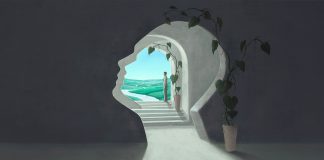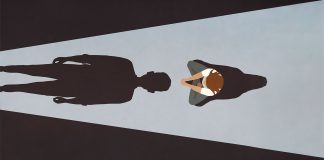Alina Kartman
The Epstein files and the magnetic fascination with scandal
The Jeffrey Epstein case periodically returns to the public eye with new revelations that promise, but fail, to provide a complete picture. Instead, the same reaction emerges: outrage, distrust of institutions, suspicion of elites and insatiable curiosity. Why does this story continue to captivate us?
The problem of evil: can faith withstand modern criticism?
If we accept that there are realities beyond our direct perception, then faith in God becomes a hypothesis worthy of serious consideration, rather than an absurdity.
Ukraine and the elusive concept of moral justice
This is neither a political nor a moralising article. Rather, it is an invitation to engage in collective meditation on the terrible suffering of the war in Ukraine, which is close to home for many of us. The resource guiding this meditation is one that recent decades have ignored at an existential cost that we truly cannot afford: the Bible.
The face of a love that waits at the gates of Heaven
With Jesus, it was always different. For most of my life, I could only see God the Father through a legalistic filter. But with Jesus, it was always different.
I wanted to create my own nutrition AI agent
We are living in strange times. Never before have there been so many "mentoring programmes", "transformational coaching", or "psychological methods" for sale, and never before has it been easier for them to be generated by artificial intelligence. An entire industry promises change, clarity, and discipline, but often there is no human behind these promises, only a robot.
Dangerous closeness: How to recognise and prevent abuse
Sexual abuse follows a predictable pattern, but unfortunately this pattern is not widely known. It is essential to recognise its early signs and profound effects for both protection and healing.
Violence: an exploration of its origins, perpetuation, and eradication
In the US, the shocking news of Charles Manson's death marked the end of a disturbing chapter in history.
The Kiss of Judah | What remains after trust has been betrayed?
The first time Judas's kiss was heard was in the Garden of Gethsemane. However, its echo is repeated whenever the trust of an unsuspecting soul is betrayed. Betrayal, especially when it wears the mask of faith, tears apart the moral fabric of those who are wounded by it.
The business of menopause
For a long time, menopause has been a taboo subject. However, in recent decades, two things have changed simultaneously: women have started talking openly about their experiences, and companies have spotted an opportunity.
“My children are geniuses” (and other exaggerations of the modern parent)
Every generation of parents loves their children and searches for the best ways to support them and prepare them for a successful start in life. Modern parents, however, often take this effort to extremes, complicating their children’s lives (and their own, just as much) in an attempt to clear a perfectly smooth path for their still-uncertain steps.
The anatomy of belief: Part 2 | When meaning turns into an industry
Every religious movement and "camp" is built around a desirable ideal. However, when this core value becomes an end in itself and love—the hallmark of the Christian faith—is pushed into the background, tensions turn into open conflicts.
The anatomy of belief: Part 1 | When reason becomes just another emotion
Western societies pride themselves on their access to information. Compared to our predecessors, we seem to be the most informed generation to have ever lived on Earth. However, paradoxically, the more data we have access to, the harder it is to determine what is true and what is false.
The light that penetrates the cracks in the wall of algorithms
With its appearance as a contemporary version of the Ancient Greek agora, the internet has made free expression an implicit part of our daily lives. However, the more we learn about the increasingly complex nature of algorithms and the intentions of those who have the power to dictate them, the more we realise that the digital world is not, by definition, a truly...
Rest through faith—a form of countercultural resistance
"Hi, Alina! I hope you had a productive weekend" was the opening line of an email that, to me, encapsulated a whole misguided philosophy of life.


























